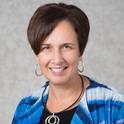Presentation
Falls, Fall Sequale, and Healthcare in Aging Community Dwelling Elderly Cancer Survivors
Gerontological Society of America
(2010)
Abstract
The influence of cancer on elderly is examined in a Home and Community Based Waiver program during 2002-2007. A comparison of with cancer (865) to without cancer (8617) on falls, fractures and healthcare use occurred. Data were obtained from Minimum Data Set assessments, vital records, and claims. Mean age was 77.1 years, 67.8% female, 74.0% Caucasian. Cancers was 92.7% > stage 2. Falls were 35.9% (304) with cancer and 25.3% (2,174) with non-cancer, a significant difference (p-value 0.01); hip fractures were 4.6% (38) and 5.3% (449) p-value 0.38; service use: ER 35.4% (295) to 22.2% (1904) and hospitalization 13.1% (109) to 10.6% (911), p-values <.001 respectively. A cancer diagnosis increased falls and service use; no difference was found in fractures. As elderly cancer survivor’s transition through life, clinicians need to be aware that these patients are prone to increased falls, assess risk, and implement interventions to prevent falls.
Keywords
- Falls,
- Cancer
Disciplines
Publication Date
Fall 2010
Citation Information
Sandra Spoelstra. "Falls, Fall Sequale, and Healthcare in Aging Community Dwelling Elderly Cancer Survivors" Gerontological Society of America (2010) Available at: http://works.bepress.com/sandra-spoelstra/10/
